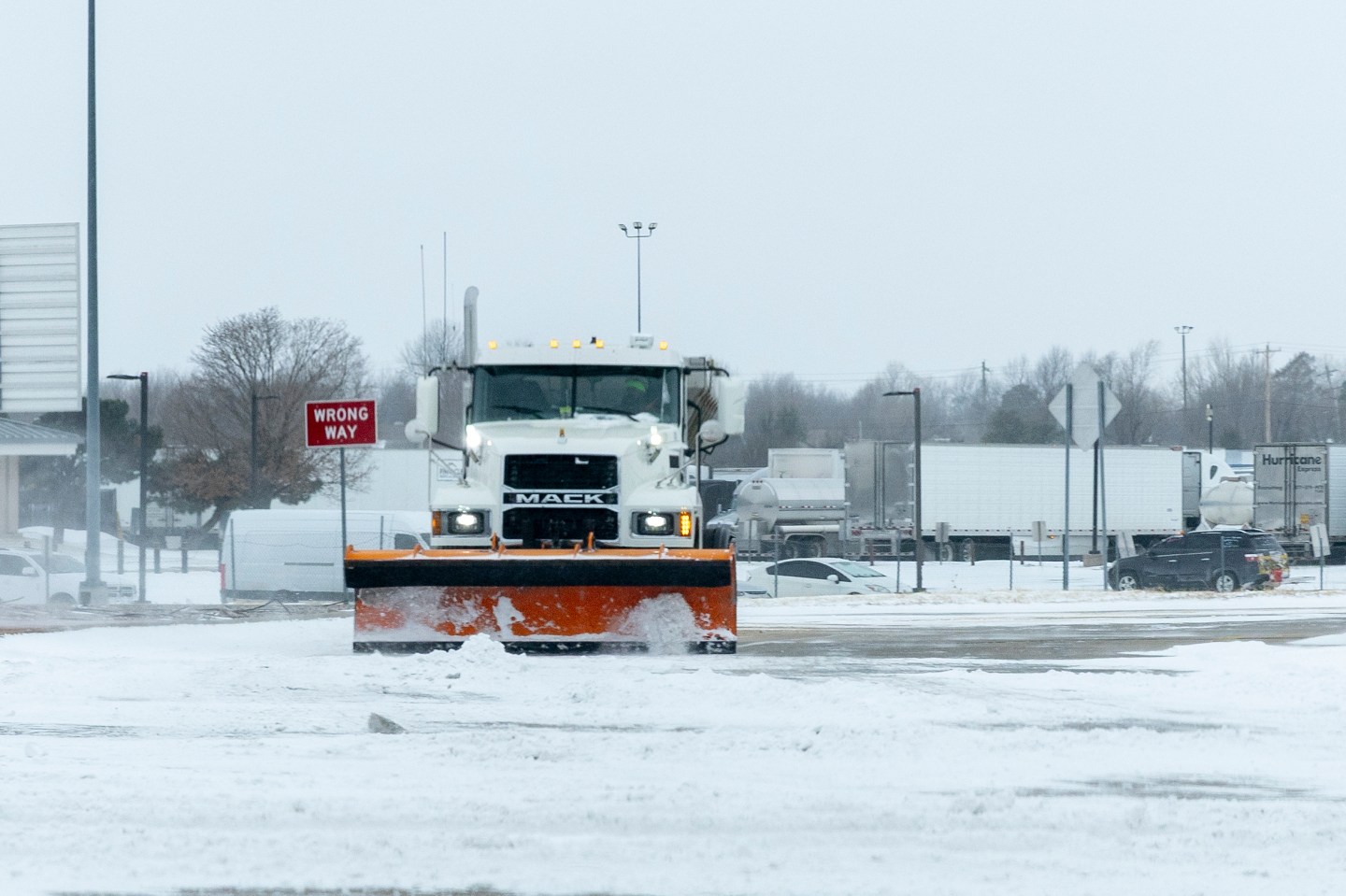The air travel nightmare is only getting worse. The Federal Aviation Administration announced it will start cutting the number of flights in “high traffic” parts of the U.S. As the government shutdown continues and airports suffer from extreme staffing shortages.
There will be a 10% reduction in capacity at 40 airports, Transportation Secretary Sean Duffy said Wednesday. That amounts to thousands of flights each day, primarily domestic and regional.
“This is about where’s the pressure and how do we alleviate the pressure,” he said.
The pressure stems from a shortage of TSA agents and air traffic controllers during the government shutdown, which began Oct. 1. The shutdown followed Congress’s failure to pass legislation to fund the government for 2026. Democrats have blocked Republican funding bills because they don’t include provisions like extending Affordable Care Act subsidies. But Republicans say they’re only willing to discuss those when the government reopens, leading to gridlock.
And because of the shutdown, nearly 13,000 air traffic controllers and 60,000 TSA agents have been working without pay for more than a month, so some have not been showing up to work.
“Currently, half of our Core 30 facilities are experiencing staffing shortages, and nearly 80% of air traffic controllers are absent at New York–area facilities,” according to an X post by the FAA on Oct. 31. “The shutdown must end so that these controllers receive the pay they’ve earned and travelers can avoid further disruptions and delays.”
TSA agents are stretched so thin that passengers have been forced to wait in lines as long as four-and-a-half hours at some airports, especially at Houston’s George Bush Intercontinental and Hobby airports. Other major hubs, such as Atlanta and Newark, have experienced long wait times.
Even without pay, TSA agents aren’t allowed to strike as federal workers. A similar situation happened during the 1980s during the Reagan administration. About 13,000 air traffic controllers went on strike following negotiations over pay and work schedules. Still, the Reagan administration fired 11,000 of them and barred them from ever working for the federal government again. Instead, today, some TSA employees and air traffic controllers have simply not been showing up for work, but Duffy has said he won’t fire them.
Duffy called the action to cut back the number of flights at major airports including Hartsfield-Jackson Atlanta International, Charlotte Douglas International, Boston Logan International, Baltimore/Washington International, as well as Newark, Washington Dulles, and Reagan National “proactive,” saying airports and airlines don’t want to “find ourselves in a situation, we don’t want a horse out of the barn, and look back and say there were issues we could have taken that we didn’t.”
“We are going to proactively make decisions that keep the airspace safe,” he said.
Airlines are losing out
Given that thousands of flights are canceled each day, airlines will have fewer passengers—and therefore less money to make.
Plus, United Airlines CEO Scott Kirby wrote in an open letter to customers on Thursday any customer who is traveling during this period is eligible for a refund if they don’t wish to fly, even if their flight isn’t impacted. That includes non-refundable and basic economy tickets.
“The FAA’s goal is to relieve pressure on the aviation system so that we can all continue to operate safely,” Kirby wrote. “That is the FAA’s highest priority, and ours as well. No matter what environment we’re operating in, we will not compromise on safety.”
United Airlines declined to comment on how much money it has lost so far or how much it expects to lose due to the government shutdown. However, the U.S. Travel Association said in a letter to Congressional leaders this week that the economy has already lost more than $4 billion because of the shutdown.
Delta said in a Thursday announcement it plans to operate the “vast majority” of its flights as scheduled, including international service “while keeping safety our top priority.” They’re also offering customers cancellations or refunds “without penalty.”
American Airlines is taking a similar approach to refunds and cancellations and said Thursday that most flights are not expected to be affected.
“Disrupting customers’ plans is the last thing we want to do,” according to American Airlines. “In the meantime, we continue to urge leaders in Washington, D.C., to reach an immediate resolution to end the shutdown.” The airline also said it remains “grateful” to air traffic controllers and TSA agents who have been working without pay.”
Delta and American Airlines did not respond to Coins2Day’s request for comment on how much they had lost or plan to lose due to the shutdown.
Upcoming Thanksgiving travel
Thanksgiving is just 21 days away, and happens to be one of the busiest air travel periods of the year.
Considering these changes are going into effect tomorrow and the current government shutdown is the longest in American history at more than 36 days, there’s reason to be concerned that Thanksgiving travel plans could be impacted.
“With Thanksgiving, the busiest travel period of the year, imminently approaching, the consequences of a continued shutdown will be immediate, deeply felt by millions of American travelers, and economically devastating to communities in every state,” the U.S. Travel Association wrote in its letter this week.
Last year, more than 20 million passengers flew in the U.S. During the week of Thanksgiving, according to the U.S. Travel Association, and holiday travel spending generates billions of dollars in economic activity, supports jobs, local tax bases, and small businesses nationwide.
“Thanksgiving is not only a time of national tradition and family connection, but also one of the most economically important travel weeks of the year,” according to the U.S. Travel Association. “A continued shutdown is likely to significantly suppress travel demand and spending, creating a real threat to American workers, businesses, and the overall economy.”













